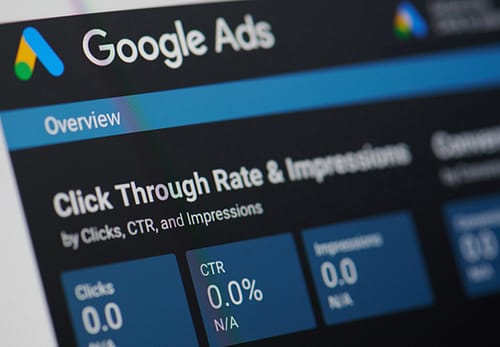In the world of digital marketing, keyword research and Quality Scores are two pivotal elements that determine the success of Google Ads campaigns. Effective keyword research lays the foundation for a successful campaign, while a high-Quality Score can significantly reduce costs and improve ad performance. This comprehensive guide delves into the intricacies of keyword research and Quality Score, providing you with the insights needed to optimise your Google Ads campaigns.
The Importance of Keyword Research
Keyword research is the process of identifying the words and phrases that potential customers use when searching for products or services online. This research is essential for several reasons:
- Relevance: Choosing the right keywords ensures that your ads are shown to users who are genuinely interested in your offerings.
- Traffic: Well-selected keywords can drive targeted traffic to your website, increasing the likelihood of conversions.
- Cost Efficiency: By targeting the right keywords, you can avoid wasting your budget on irrelevant clicks.
- Competitive Advantage: Understanding the keywords your competitors are targeting can help you identify opportunities and gaps in the market.
Steps for Effective Keyword Research
- Define Your Objectives
Begin by clearly defining your campaign objectives. Are you aiming to increase brand awareness, generate leads, or boost sales? Your objectives will influence the type of keywords you target. For instance, broad keywords might be suitable for brand awareness, while specific, long-tail keywords are better for driving sales. - Identify Seed Keywords
Seed keywords are the basic terms related to your business. These keywords serve as the starting point for your research. Think about the main products or services you offer and how potential customers might search for them. For example, if you run an online bookstore, seed keywords might include “buy books online,” “novels,” or “children’s books.” - Use Keyword Research Tools
Several tools can help you expand your list of keywords. Google Keyword Planner, SEMrush, Ahrefs, and Moz Keyword Explorer are popular choices. These tools provide data on search volume, competition, and related keywords, helping you identify valuable terms to target. - Analyse Search Intent
Understanding the intent behind a keyword is crucial. Search intent can be informational, navigational, commercial, or transactional. By aligning your keywords with the user’s intent, you can create more effective ads. For example, a user searching for “best books for 2024” is likely looking for recommendations, whereas someone searching for “buy Harry Potter book” is ready to make a purchase. - Evaluate Keyword Metrics
When assessing keywords, consider metrics such as search volume, competition, and cost per click (CPC). High search volume indicates a popular term, but it might also mean higher competition. Conversely, low-volume keywords can be less competitive and more cost-effective. Balance these factors to choose the most suitable keywords for your campaign. - Categories Keywords
Group your keywords into categories or themes. This organisation helps in creating structured ad groups and writing targeted ad copy. For instance, an online bookstore might have categories like “fiction,” “non-fiction,” “children’s books,” and “textbooks.” - Incorporate Long-Tail Keywords
Long-tail keywords are longer, more specific phrases that often have lower search volume but higher intent. These keywords can be less competitive and more cost-effective. For example, instead of targeting “books,” you might target “best science fiction books for adults.” - Utilise Negative Keywords
Negative keywords prevent your ads from showing for irrelevant searches. For example, if you sell premium books, you might use negative keywords like “cheap” or “discount” to avoid attracting budget-conscious shoppers. Regularly review and update your negative keyword list to maintain the relevance of your campaigns.
Understanding Quality Score
Quality Score is a metric used by Google Ads to evaluate the relevance and quality of your ads, keywords, and landing pages. It is measured on a scale of 1 to 10, with 10 being the highest. Quality Score influences your ad rank and the cost per click (CPC) you pay. A higher Quality Score can lead to lower costs and better ad positions.
Factors Affecting Quality Score
- Expected Click-Through Rate (CTR)
CTR is the ratio of clicks to impressions. A higher CTR indicates that users find your ad relevant and engaging. Google estimates the expected CTR based on historical data. To improve your CTR, ensure that your ad copy is compelling and closely aligned with the user’s search query. - Ad Relevance
Ad relevance measures how closely your ad matches the intent of the user’s search. Ads that are highly relevant to the keywords they target tend to have higher Quality Scores. To improve ad relevance, use your target keywords in your ad copy and ensure that the ad addresses the user’s needs. - Landing Page Experience
The quality and relevance of your landing page also impact your Quality Score. Google evaluates factors such as page load speed, mobile-friendliness, and the relevance of the content to the ad and keywords. To enhance the landing page experience, ensure that your landing pages are fast, user-friendly, and provide valuable content that aligns with the user’s search intent. - Ad Extensions
Ad extensions provide additional information and can improve the performance of your ads. Extensions like site links, callouts, and structured snippets can increase your CTR and, consequently, your Quality Score. Use relevant ad extensions to provide more value and options to users.
Strategies to Improve Quality Score
- Refine Your Keywords
Continuously review and refine your keyword list to ensure it remains relevant to your business and audience. Remove underperforming keywords and focus on those that drive the best results. - Optimise Ad Copy
Write compelling ad copy that includes your target keywords and addresses the user’s needs. A/B testing different versions of your ads can help you identify the most effective copy. - Enhance Landing Pages
Ensure that your landing pages are optimised for speed, mobile-friendliness, and relevance. The content on your landing page should directly relate to the ad and the keywords you are targeting. Use clear calls to action and make it easy for users to find what they are looking for. - Use Relevant Ad Extensions
Implement ad extensions that provide additional value to users. Extensions can improve your CTR by making your ads more informative and appealing. - Monitor and Adjust
Regularly monitor your campaign performance and Quality Scores. Use Google Ads reports to identify areas for improvement and make necessary adjustments. Keep testing and refining your ads, keywords, and landing pages to maintain a high Quality Score.
Conclusion
Keyword research and Quality Score are integral to the success of your Google Ads campaigns. By conducting thorough keyword research, you can identify the terms that your potential customers are using and ensure your ads reach the right audience. A high Quality Score, achieved through relevant ads and optimised landing pages, can lower your costs and improve ad performance. By continuously refining your keywords, ad copy, and landing pages, you can maintain a competitive edge and maximise the effectiveness of your Google Ads campaigns. Remember, successful digital marketing requires ongoing effort, adaptation, and a keen understanding of your audience’s needs and behaviours.
If you’ve found this blog helpful and want to dive deeper into Keyword Research & Google Ads Quality Score or have any specific questions, please feel free to get in touch!

















